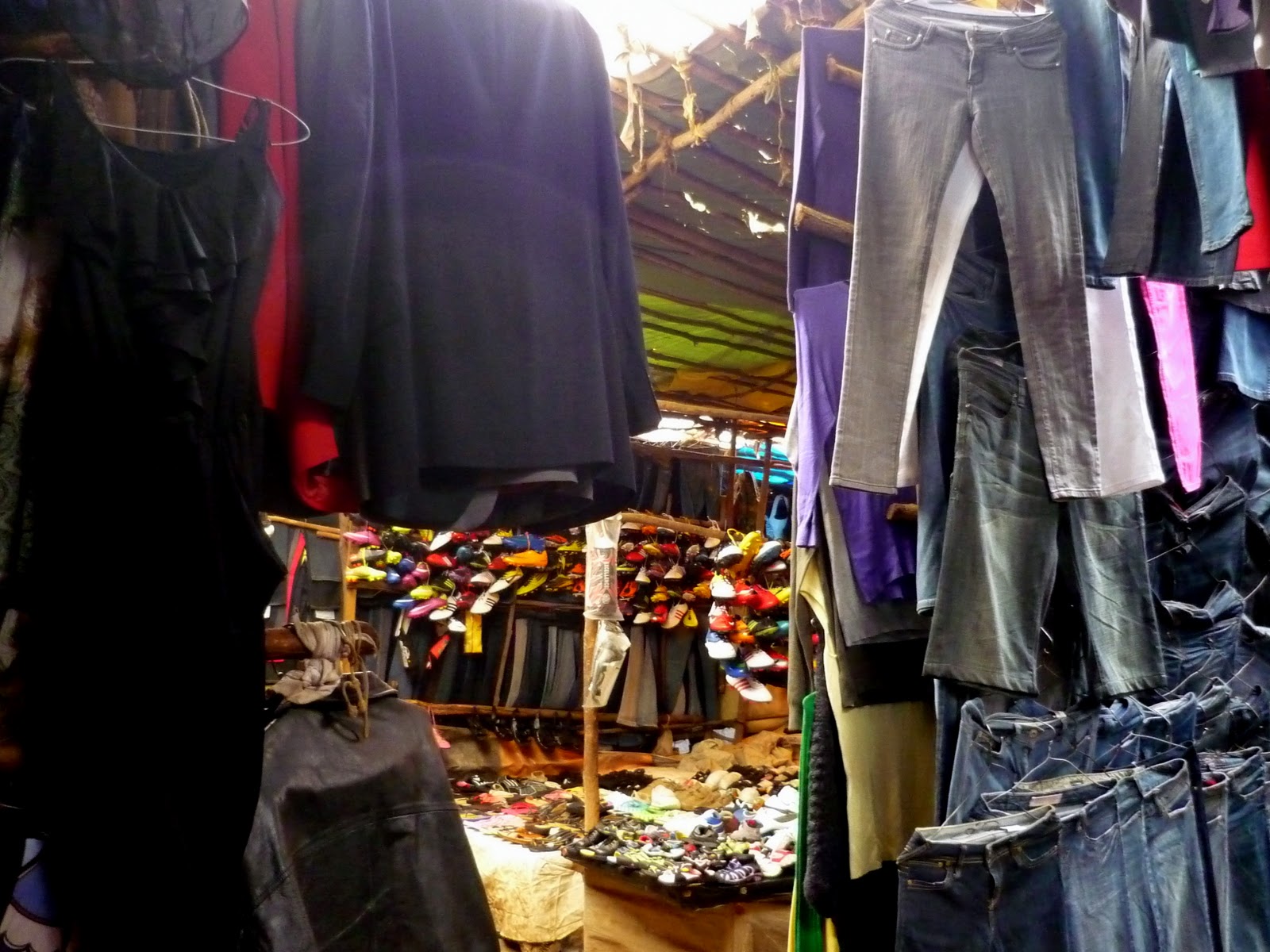So, now it's October. Which means it will soon be November, which means it will soon be December, which (as everyone who designs mall window displays in the US knows) means that it's time to start Christmas shopping.
No joke. I totally shopped for Christmas gifts this weekend. And men, let it be noted, on the record, that you are all ridiculously difficult to buy for. I asked my brother if he wanted a traditional Masai spear, and he said that New York MTA frowns on that sort of thing. Then I asked if he wanted sandals made out of car tires, and he said, "umm, what?" And with those two suggestions shot down, I am officially out of ideas.
But I suppose I was mostly just tying to soak up my last week of conveniences, before flying to Marsabit in 8 days time. And Nairobi really does have everything a person could ever want in shopping. To this end, I present Exhibit A:
Yep.
That's right. Organic, fair trade, gluten free, quinoa pops. And, no, I did not take this photograph in Seattle. Sure, these gems were spotted in Yaya Centre, which is arguably the whitest shopping mall in Nairobi, but still, quinoa pops, people. Please take all the time you need to reevaluate your impressions of Kenya.
Of course, this sort of stuff is prohibitively expensive to most people, myself included, but I did walk out of Yaya Centre with a different prize that day... Exhibit B indication of Nairobi having anything you could ever want:
Razzle Dazzle.
I bought this at the toy store (kids these days), and tried very hard to arrange my face into an "Obviously, I'm buying this for my niece/daughter... NO, it's not for me!" expression, but the smirk on the cashier's face was not believing a single non-verbal word of it.
What can I say?
From my experience, Nairobi shopping can be divided into three distinct categories: 1. The legitimate shopping malls that cater to ex-pats and wealthy Kenyans, where all incoming cars are searched for bombs (Razzle Dazzle hat and quinoa pops both spotted here); 2. Masai markets and other curio stalls that cater to tourists; and 3. The markets where most Kenyans shop.
The Masai Markets are the type of open-air craft market that you can see at any tourist city in the world (albeit with Kenyan-made (presumably) crafts). The heady combination of souvenirs and haggling.
The toy buckets below are actually from a free-standing shop rather than a Masai Market, but I'm sure that's only because the greater Kenyan entrepreneurship hasn't come across the idea to mass market them yet. These are balls of plastic bags, tied together with twine. Literally, like a bunch of QFC (or Safeway, or Windixie) plastic bags tied together with string, into a ball form. It's a toy I've seen some Kenyan kids playing with in lieu of an actual ball, but these ones were priced at around $6. $6 for a bunch of old plastic bags tied together. Just saying.
The third type of Nairobi shopping is where most Kenyans go, to my understanding. The outdoor markets that sell food and functional work clothes instead of brightly-colored beads. One such market is Toi Market, which I had the pleasure to visit this weekend.
Toi Market stalls.
It's a maze of stalls held together by wooden poles and tin roofs. Basically, it's like a huge thrift store. As if Goodwill, Crossroads, Buffalo Exchange, and many others set up shop together in an open-air market and actually assisted you in finding what you need. Sellers are so motivated that you can just say, "I want a pair of 7 jeans, size XYZ, not white, not black, and no rhinestones," and less than 10 minutes later, someone will run up to you with the requested item. Aside from explaining why you think white jeans are a generally bad idea, the hassle is minimal. That's a pair of >$100 designer jeans, hand-to-hand service, for just $20. And then someone will personally take you to the lovely tailor Grace who will hem them for you on her beautiful old Singer machine, and she'll smile when you say that you think your grandmother would like to see a picture of her sewing table.
Another positive is the apparent assumption that if you have wandered into the Toi Market depths, you're probably not a tourist. Why would you pay thousands of dollars to fly across the world just to get a $15 H&M dress for a discounted $3? Not even a mzungu is that crazy. So, even though you still have to haggle/negotiate over prices the opening offer is generally reasonable rather than the 10x-inflated mzungu prices you get at the tourist markets.
And while Grace hems, a somewhere else in the maze group of men play pool on a billiards table that's in better condition than the one at Si Si's bar in San Francisco. Where did that table come from?











No comments:
Post a Comment